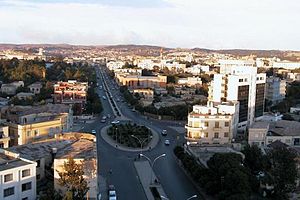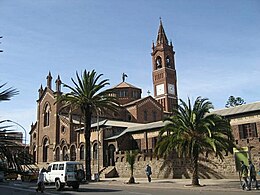 |
| Isaias And His Friends In 1972 In Ubel |
Isaias Afworki was born on February 2,1946 is the first and current President of Eritrea, attaining thatstatus when he led the Eritrean People's Liberation Front to victory in May 1991, thus ending the 30-year old armed liberation struggle that the Eritrean people refer to as "Gedli".Afewerki joined the Eritrean Liberation
Front (ELF) in 1966, and the following year he was sentto China to receive more advanced military training. Four years later he was appointed commander in the ELF army. However, citing irreconcilable ideologicaland tactical differences, he and a small group of combatants separated from the ELF and founded
After Eritrean independence was achieved in 1991 and in 1993 after a referendum, Afewerki became the first head of state. During the first years of his administration in this new state government, the institutions of governance were structured and put in place. This included a top to bottom restructuring of the structures of governance by provision of an elected local judicial system to expanding the educational system to as many regions as possible. In November 1993 the President ordered the imprisonment of war-injured veterans for protesting about difficult living conditions in military barracks. The only independent human rights organization was shut down. In 1997 the President unilaterally ordered the closure of all international development agencies working in the country. Presidential elections, planned for 1997, never materialised and Eritrea remains a one-party state, with the ruling People's Front for Democracy and Justice the only party allowed to operate In May 2008 Afewerki announced that elections would be postponed for "three or four decades" or longer because they "polarize society.Also in 1998 a border conflict with neighbouring Ethiopia spiralled into a full-blown war; Afwerki turned down several offers of a peaceful settlement. In September 2001 Afwerki ordered the arrest of eleven of the highest-ranking members of his administration, many of them his closest friends and colleagues who had fought alongside him for nearly four decades. They were arrested for 'suspected treasons for selling their country and their people.










